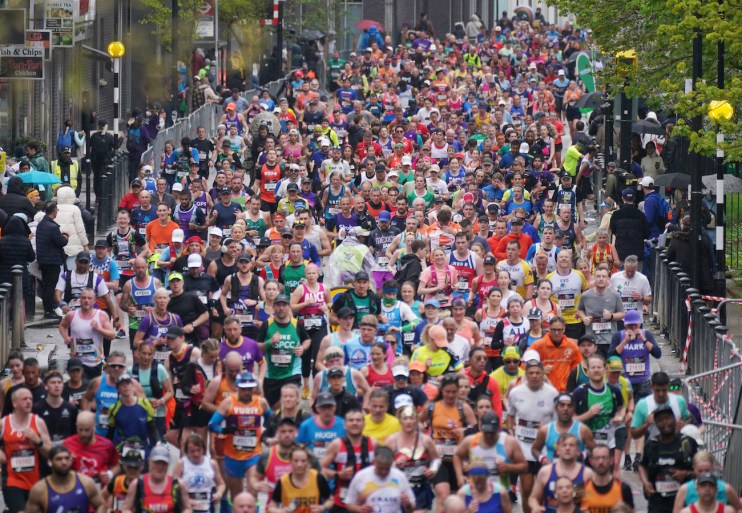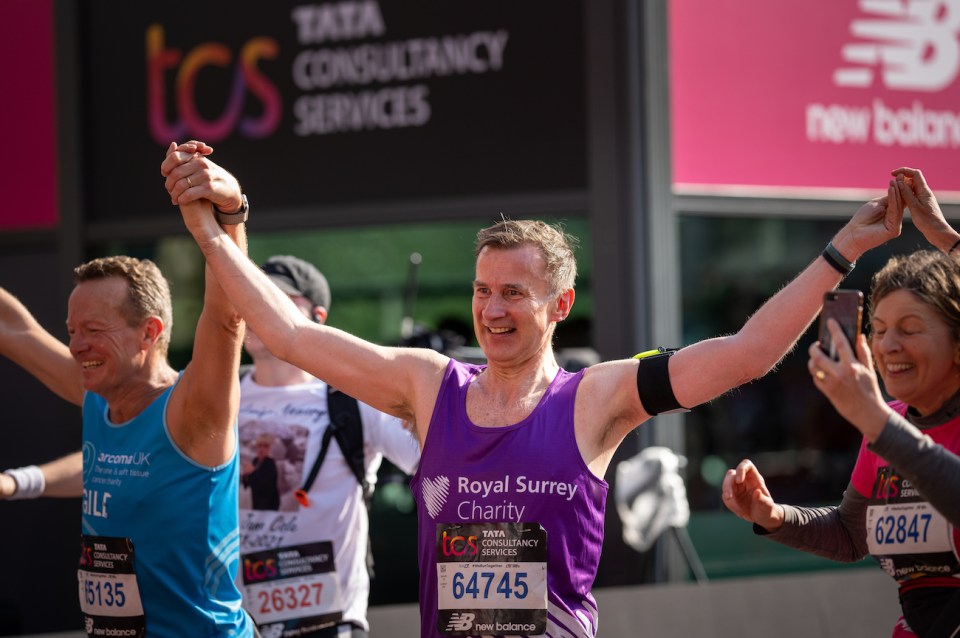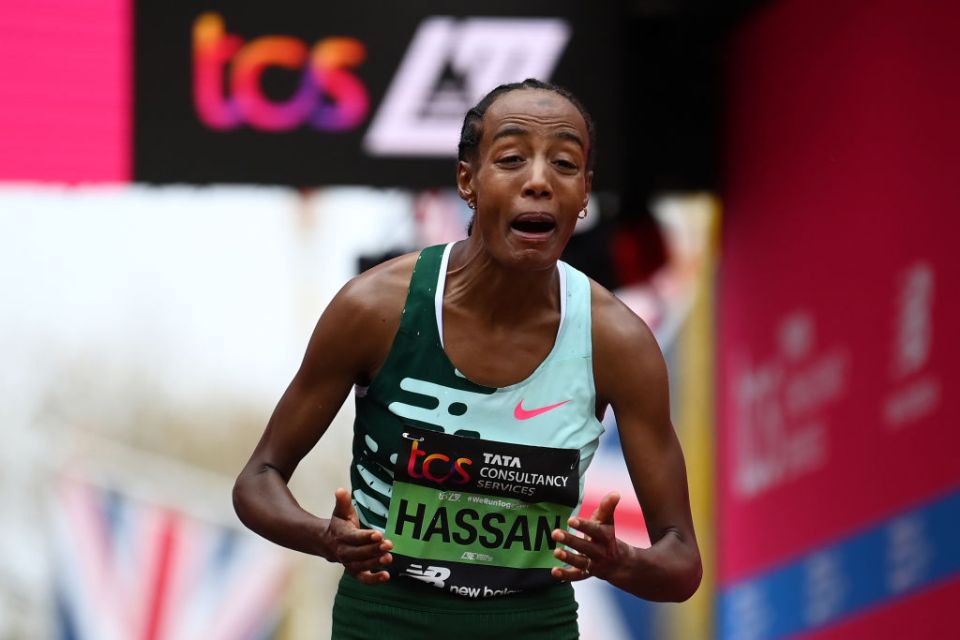London Marathon: 45 Guinness World Records smashed including for runners dressed as a boxer and 3D dinosaur

Tens of thousands of people braved the pouring rain to complete what is likely to have been the largest London Marathon in history and which also saw a new top time in the men’s elite race.
Some 49,675 runners registered for this year’s race, up from the previous record of 43,199 in 2019 – and around 48,000 are expected to have crossed the finish line on Sunday.

TCS London Marathon organisers said they expanded numbers in an attempt to reach a cap of 50,000.
Meanwhile, amateur runners broke 45 Guinness World Records, including Alex Grady for fastest time dressed as a boxer and Richard Allison for quickest while dressed as a three-dimensional dinosaur.
BBC Radio 1 DJ Adele Roberts, who began using a stoma bag in 2021 following surgery for bowel cancer, completed the fastest marathon for a person with an ileostomy, with a time of 3:30:22.
Roberts showed a tiny replica medal for her stoma, which she has named Audrey, in a video posted on her Instagram story where she thanked her supporters, adding: “We did it, up yours cancer.”
Braving the rain
The runners set off beneath overcast skies amid temperatures of around 8C (46.4F), and the downpours came mid-morning, affecting both the elite and mass participation races.
Among them were England rugby union captain Chris Robshaw, X-Factor 2014 contestant Jake Quickenden, and a team of EastEnders actors racing in memory of their late co-star Dame Barbara Windsor.
At the finish line, Heather Peace – of the EastEnders troupe – said she was “absolutely stoked” to hear they had raised £50,000 for Alzheimers UK.
Some £60 million is expected to have been gathered for charities in total.
The women’s elite race got off to a dramatic start after record-holder Brigid Kosgei began limping and pulled out after just three minutes.
The Kenyan holds the fastest women’s marathon time of 2:14:04.

Sifan Hassan, an Ethiopian-born Dutch athlete, took first place – a surprise win after she fell back at the 15-mile mark clutching her hip, and given it was her debut marathon.
The 30-year-old finished with a time of 2:18.33.
Men’s winner Kiptum, 23, missed out on Eliud Kipchoge’s world record by just 18 seconds.
Britain’s first finisher in the men’s race, Emile Cairess, came sixth on his marathon debut while fellow GB athlete and junior doctor Philip Sesemann placed eighth.
Sir Mo Farah, 40, who was competing at marathon level for the final time, finished just behind at ninth with a time of 2:10.28.
Extinction Rebellion (XR) protesters who gathered in the streets nearby for the third day of their demonstration dubbed “The Big One” stuck to their pledge of avoiding disruption to the race.
Laura Parnaby – Press Association
History of the London Marathon
The first London Marathon took place 29 March 1981.
More than a million people have completed the course and over a billion pounds has been raised for charity.
The event was inspired by the New York City Marathon, which was established in 1970, Olympic steeplechase medallists Chris Brasher and John Disley were determined that the London Marathon would showcase the very best of the capital. T
More than 22,000 runners applied to take part in the first race. However, the original capacity was capped due to safety reasons, so there were just 7,741 runners who crossed the first-ever Start Line in Greenwich Park. A mere fraction of the 45,000-plus runners that we see in the modern versions of the event.
The only man to set a world record at the London Marathon is the USA’s Khalid Khannouchi, who ran a time of 2:05:38 in 2002. The men’s course record is 2:02:37, set in 2019 by four-time winner and arguably the greatest marathon runner of all time, Eliud Kipchoge of Kenya.
Australia’s Kurt Fearnley set the men’s wheelchair race course record at 1:28:57 in 2009 and the women’s wheelchair course record belongs to Switzerland’s Manuela Schär, who finished in 1:39:57 in 2017.
